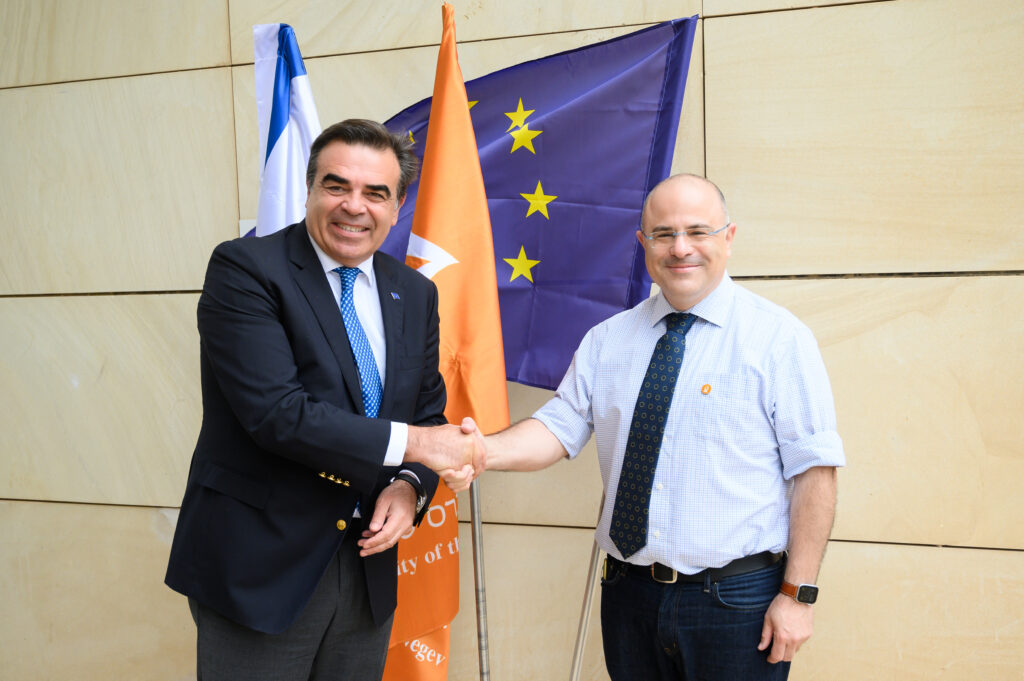
How Winning Leads to Cheating
February 3, 2016
Business & Management, Press Releases, Social Sciences & Humanities
Researchers from Ben-Gurion University and The Hebrew University of Jerusalem have determined that people who win a competition are more likely to cheat or act dishonestly in the future, according to a new study published online yesterday in the prestigious Proceedings of the National Academy of Sciences.
“We already know that some politicians and business executives will often resort to unethical means to win, for example the recent Volkswagen scandal,” explains Dr. Amos Schurr, a lecturer in BGU’s Guilford Glazer Faculty of Business and Management and member of the University’s Decision Making and Economic Psychology Center. “Our research was focused on who is more likely to subsequently engage in unrelated unethical behaviors – winners or losers?”
The researchers found that after a competition is over, winners behave more dishonestly than losers in an unrelated subsequent task. Furthermore, the subsequent unethical behavior effect seems to depend on winning, rather than on mere success.
The research group conducted five studies with students in Israel. The first two studies demonstrated that winning a competition increases the likelihood of winners to steal money from their counterparts in a subsequent unrelated task. Studies 3a and 3b demonstrated that the effect holds only when winning means performing better than others, but not when success is determined by chance or in reference to a personal goal.
The last study, a post-competition survey, suggested that winners felt a sense of entitlement after besting their opponents in the initial competition, which the researchers say explains why they were more likely to cheat in the second contest. The subsequent unethical behavior effect seems to depend on winning, rather than on mere success.
“These findings suggest that the way in which people measure success affects their honesty. When success is measured by social comparison, as is the case when winning a competition, dishonesty increases,” Schurr explains. “When success does not involve social comparison, as is the case when meeting a set goal, defined standard or recalling a personal achievement, dishonesty decreases.”
The researchers concluded that, “It is difficult to overstate the importance of competition in advancing economic growth, technological progress, wealth creation, social mobility, and greater equality. At the same time, however, it is vital to recognize the role of competition in eliciting censurable conduct.
“A greater tendency toward unethicality by winners is likely to impede social mobility and equality, exacerbating disparities in society rather than alleviating them. Finding ways to predict and overcome these tendencies may be a fruitful topic for the future study.”
Prof. Ilana Ritov of Hebrew University’s School of Education and The Federmann Center for the Study of Rationality was also a researcher on this study. The research was supported by the I-CORE program of the Planning and Budgeting Committee, the Israel Science Foundation (Grant 1821/12), and by the Guilford Glazer Faculty of Business and Management, Ben-Gurion University of the Negev.
ABOUT AMERICANS FOR BEN-GURION UNIVERSITY
By supporting a world-class academic institution that not only nurtures the Negev, but also shares its expertise locally and globally, Americans for Ben-Gurion University engages a community of Americans who are committed to improving the world. David Ben-Gurion envisioned that Israel’s future would be forged in the Negev. The cutting-edge research carried out at Ben-Gurion University drives that vision by sustaining a desert Silicon Valley, with the “Stanford of the Negev” at its center. The Americans for Ben-Gurion University movement supports a 21st century unifying vision for Israel by rallying around BGU’s remarkable work and role as an apolitical beacon of light in the Negev desert.
About Ben-Gurion University of the Negev
Ben-Gurion University of the Negev embraces the endless potential we have as individuals and as a commonality to adapt and to thrive in changing environments. Inspired by our location in the desert, we aim to discover, to create, and to develop solutions to dynamic challenges, to pose questions that have yet to be asked, and to push beyond the boundaries of the commonly accepted and possible.
We are proud to be a central force for inclusion, diversity and innovation in Israel, and we strive to extend the Negev’s potential and our entrepreneurial spirit throughout the world. For example, the multi-disciplinary School for Sustainability and Climate Change at BGU leverages over 50 years of expertise on living and thriving in the desert into scalable solutions for people everywhere.
BGU at a glance:
20,000 students | 800 senior faculty | 3 campuses | 6 faculties: humanities & social sciences, health sciences, engineering sciences, natural sciences, business & management, and desert research.
For all press inquiries, please contact:
James Fattal, J Cubed Communications
516.289.1496




